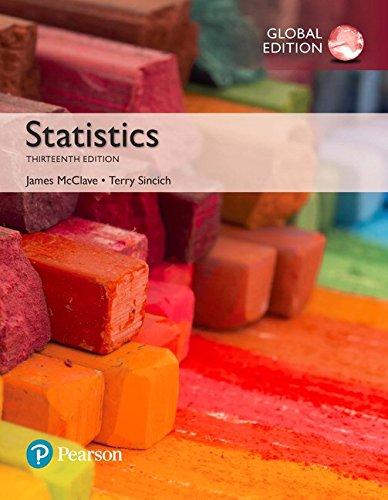FLAG study of bid collusion. Road construction contracts in the state of Florida are awarded on the
Question:
FLAG study of bid collusion. Road construction contracts in the state of Florida are awarded on the basis of competitive, sealed bids; the contractor who bids the lowest price wins the contract. During the 1980s, the Office of the Florida Attorney General (FLAG)
suspected numerous contractors of practicing bid collusion
(i.e., setting the winning bid price above the fair, or competitive, price in order to increase their own profit margin). By comparing the prices bid (and other important bid variables) of the fixed (i.e., rigged) contracts with the competitively bid contracts, FLAG was able to establish invaluable benchmarks for detecting future bid rigging. FLAG collected data on 279 road construction contracts. For each contract, the following variables were measured (the data are saved in the FLAG file):
1. Price of contract ($) bid by lowest bidder 2. Department of Transportation (DOT) engineer’s estimate of fair contract price ($)
3. Ratio of low (winning) bid price to DOT engineer’s estimate of fair price 4. Status of contract (1 if fixed, 0 if competitive)
5. District (1, 2, 3, 4, or 5) in which construction project is located 6. Number of bidders on contract 7. Estimated number of days required to complete work 8. Length of road project (miles)
9. Percentage of costs allocated to liquid asphalt 10. Percentage of costs allocated to base material 11. Percentage of costs allocated to excavation 12. Percentage of costs allocated to mobilization 13. Percentage of costs allocated to structures 14. Percentage of costs allocated to traffic control 15. Subcontractor utilization (1 if yes, 0 if no)
Use the methodology of this chapter to build a model for low-bid contract price (y). Comment on how the status of the bid affects the price.
Step by Step Answer:






